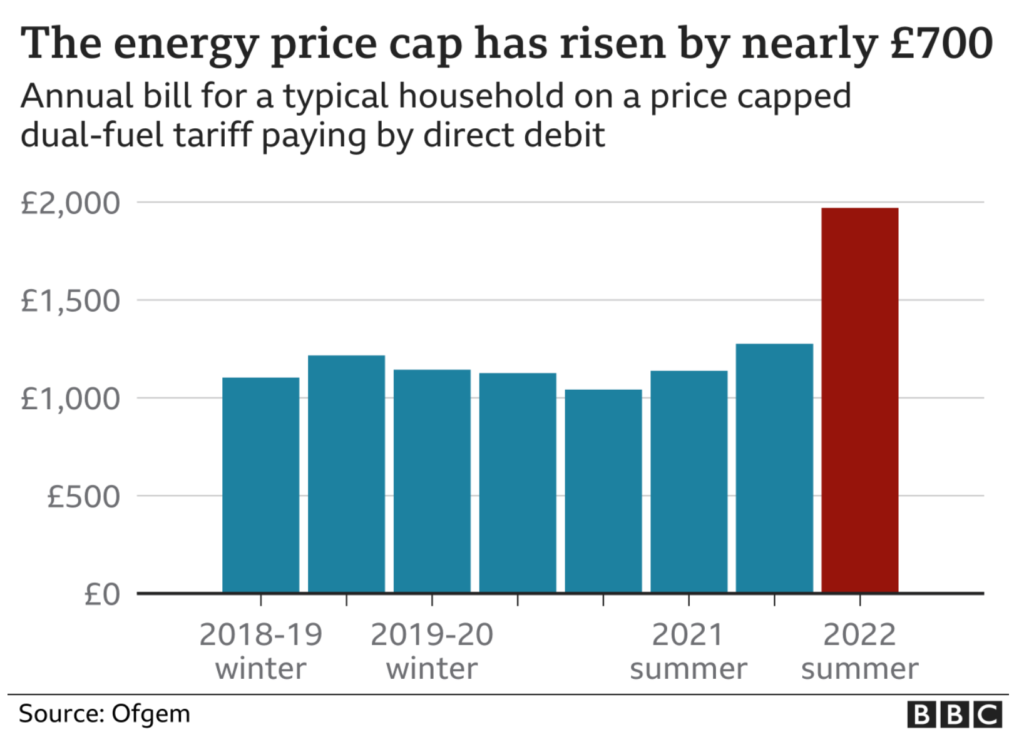Since the start of the year, we have seen a dramatic increase in the cost of living and much of this increase in the cost of living is down to the cost of gas, electricity and the fuel we put in our cars.
It has been reported that fuel poverty could double in the space of a year if fuel costs continue to rise due to the conflict in Ukraine. Analysts are estimating that the war has pushed up wholesale prices, and this could mean the average domestic bill in the UK could hit £3,000 by October 2022.
There has been a sharp downturn in consumer confidence, with eating out and spending on retail having taken quite a hit. UK retail sales have dropped by 1.7% as shoppers reduce their spending.

Energy Price Cap
Announced on 10th May 2022 during the Queen’s Speech to Parliament, delivered by Prince Charles, it has been confined the energy price cap will extend beyond 2023 to help consumers from rising fuel prices. Prince Charles said:
“Protecting consumers from unfair pricing, the energy price cap is the best safety net for millions, preventing suppliers from overcharging consumers.”
During this speech, an Energy Security Bill was announced. This will implement the Government’s new energy strategy, to increase energy security by supporting a low-carbon energy system and reduce the UK’s long-term dependence on gas. As mentioned above this new bill will also further extend the energy price cap beyond 2023. Protecting consumers from unfair pricing.
The Russian invasion of Ukraine, which started in February has only made things worse, with a fuel-supply crunch only adding to issues.
Other Government Help
From October, households will receive a £200 reduction on their energy bill to help ease the increase – which they will have to pay back in £40 instalments over the next five years.
Other Government help will include the £150 Warm Home Discount that will become available to low-income households from October. Households can also get £25 in cold weather payments if the temperature drops below freezing for a sustained period in their area, and Winter Fuel Payments of £300 to those of State Pension Age.

Looking Ahead to Net-Zero
Some say we should push harder now with our aspirations for Net-Zero. We will then be less reliant on gas and oil supplies so we will be less threatened by these price fluctuations. However, costs are still an issue – currently, it is not that cheap or simple for a household to get, let’s say, a heat pump installed. It’s not just cost either, around 50% of the electricity we require is still generated in gas-fired power stations, and more so in the winter.
While there may be pressing financial pressures around energy at the moment, we must not take our eye off the long term goal of Net-Zero, nor should we allow any current pressures to demotivate us from this ambitious but incredibly important goal.